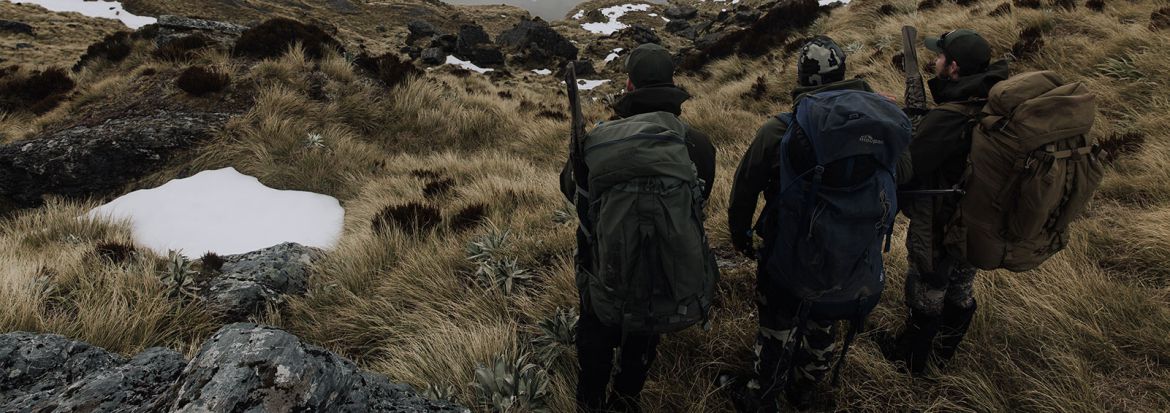
HUNTS Syllabus
1. Ethics and Ecology
The Module objectives are for the trainee to:
- Identify stakeholders in New Zealand’s outdoors and recognise their interests Range – DOC, Landowners, IWI, Forest Owners, Other Recreational Users
- Demonstrate knowledge of ethics in relation to other stakeholders, the environment and harvestable wildlife
- Demonstrate awareness of the principles of conservation and management of wildlife
2. Equipment and Food
- Objectives still to be written
3. Travel and Navigation
- Navigate in the outdoors in good visibility Range – Route selection from a map, Map orientation, Following a bearing, Establishing position from back bearings
- Demonstrate understanding of river dynamics and hazards
- Demonstrate competence in river crossing
- Demonstrate knowledge of route finding in untracked terrain
4. Big Game Species
- Demonstrate knowledge of at least two species Range – Physical characteristics, Habitat and range, Seasonal variations, Local availability
- Measure representative heads using Douglas Score
- Identify footprints, droppings and other sign for representative game and other species
5. Firearms and Marksmanship
- Demonstrate knowledge of laws relating to firearms and observe the seven basic rules of firearm safety contained in the Arms Code
- Demonstrate cleaning and maintenance of a hunting rifle Range – Field/Home
- Zero a scoped rifle with hunting ammunition
- Demonstrate knowledge of and application of the principles of marksmanship Range – Position, Sighting, Breath control, Trigger squeeze
- Demonstrate knowledge of bullet placement to achieve clean dispatch
6. Hunting Techniques
- Demonstrate knowledge of basic hunting techniques for a specified game animal Range – Knowledge of target species range and habits, Knowledge of hunting area, Stalking, Use of wind and air currents, Positive identification, Tracking wounded animals
7. Trophy and Meat
- Demonstrate field dressing
- Describe appropriate meat recovery techniques in specified situations.
- Demonstrate a knowledge of meat cuts and cooking methods.
- Describe care of a trophy in the field. Range – Head / Skin
- Identify good practice in photographing a trophy animal.
8. When Things go Wrong
- Demonstrate survival skills in outdoor environments below the snowline
- Manage simulated emergencies in outdoor environments below the snowline Range – Ill or injured person, Missing person, Overdue party, Fatality
Advanced HUNTS
1. Travel and Navigation in Wilderness Areas
- Navigate in the outdoors in poor visibility and difficult terrain
- Undertake overnight and multi day trips in wilderness area Range – Preparation, Off track tramping skills, Risk management
2. Establish and Hunt from a Fly Camp
- Select equipment suitable for a fly camp
- Select a site Range – Proximity to hunting area, Wind direction, Water and shelter, Drainage
- Establish a fly camp Range – Tent/fly erection, cooking, fire risk, Toileting, Environment Care Code
- Hunt from a fly camp Range – Navigation, Use of binoculars, Wind direction, Food
